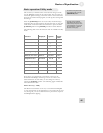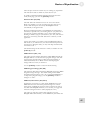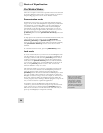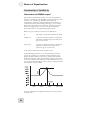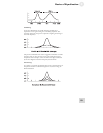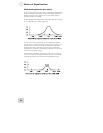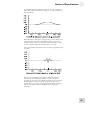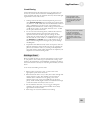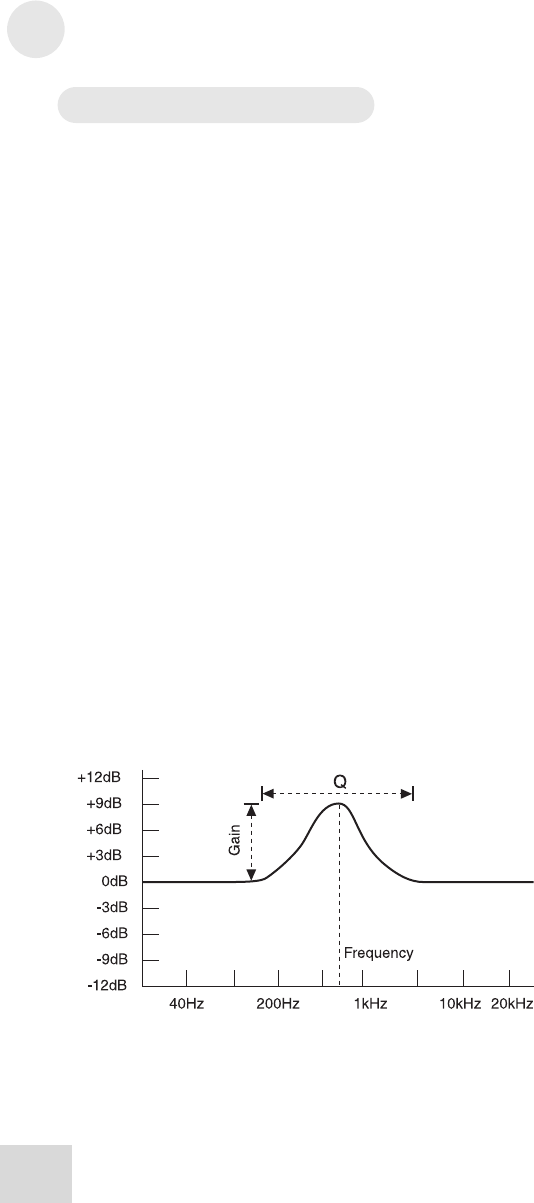
3 Basics of Equalization
Constant Q vs. Variable Q
What makes the DEQ830 unique?
Early graphic equalizers relied solely on a form of equalization
known as “Variable Q.” The DEQ830, on the other hand, is what
is known as a “Constant Q” equalizer. This method of
equalization is a relatively recent development in the history of
sound reinforcement and recording technology. As you will see
illustrated in the charts in this section, the Constant Q method
allows for a higher degree of control over the sound being
processed because of its significantly greater accuracy.
Before we go any further, it’s time for some definitions:
Q The range of frequencies affected by a band
Variable Q A process in which the range of frequencies
affected by a band changes as the amount of
gain is cut/boosted
Constant Q A process in which the range of frequencies
affected by a band stays the same as the
amount of gain is cut/boosted
It may help to define these terms visually as well.
In the following illustration, we see the three basic terms that
govern the operation of a single band. The vertical bar of the
graph represents decibels of cut/boost, and the horizontal bar
represents frequency in Hz. The dotted line leading to the center
of the curve indicates the frequency at which this band is set. You
can see that in this example, Q covers a range of frequencies from
about 200 Hz to about 5 KHz.
In the next illustration, the difference between a narrow Q and a
wide Q is seen:
52




